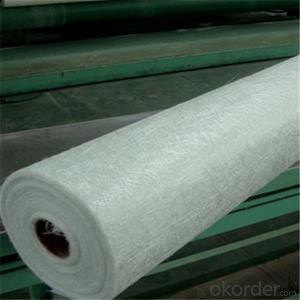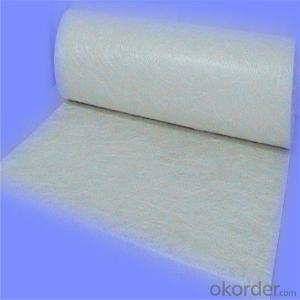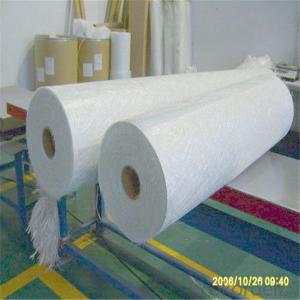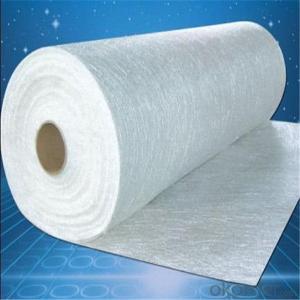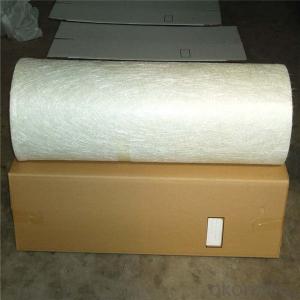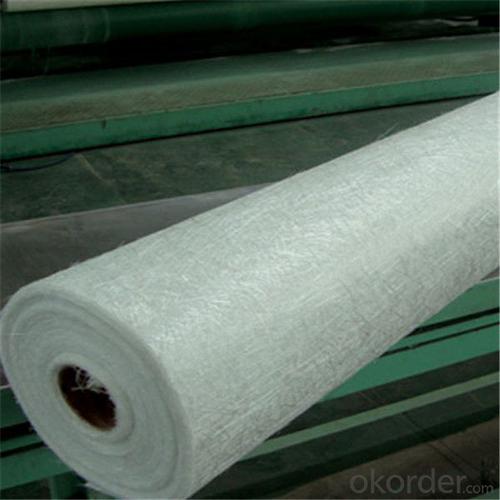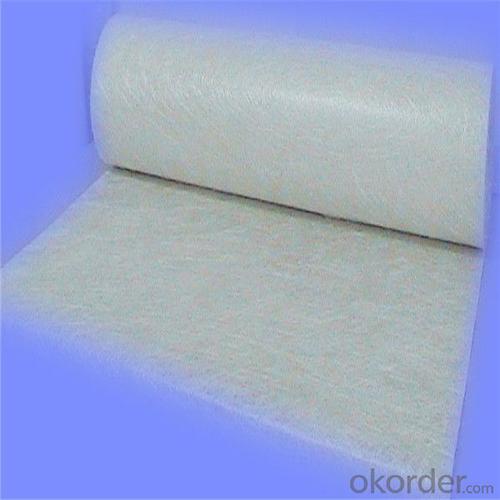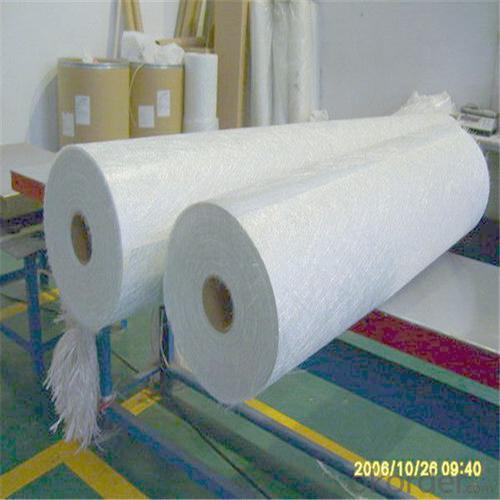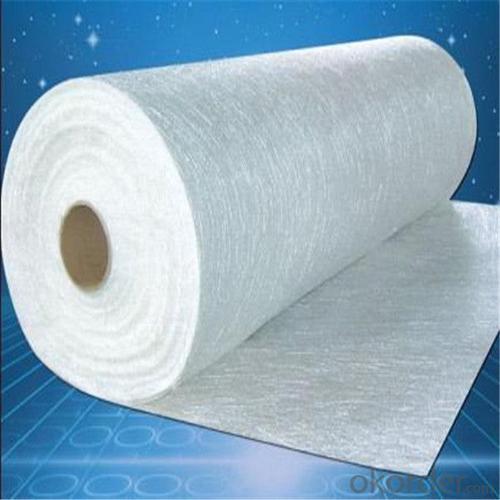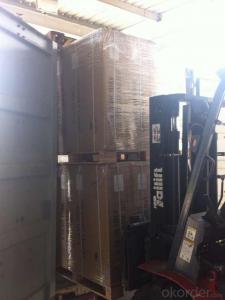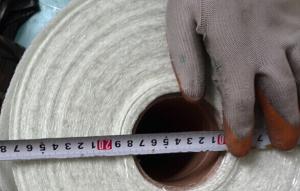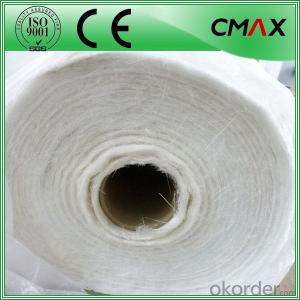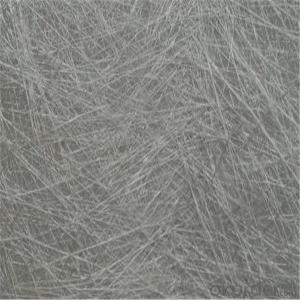Fiberglass Mat Tissue - Glass Fiber Chopped Strand Mat (Factory Price)
- Loading Port:
- Tianjin
- Payment Terms:
- TT OR LC
- Min Order Qty:
- 100 m.t.
- Supply Capability:
- 20000 m.t./month
OKorder Service Pledge
Quality Product, Order Online Tracking, Timely Delivery
OKorder Financial Service
Credit Rating, Credit Services, Credit Purchasing
You Might Also Like
Quick Details
| Technique: | Chopped Strand Fiberglass Mat (CSM) | Dimensions: | 450gsm | Mat Type: | Continuous Filament Mat |
| Fiberglass Type: | E-Glass | Softness: | softness | Place of Origin: | Jiangxi, China (Mainland) |
| Brand Name: | cnbm | Model Number: | 450gsm | color: | white |
| fiberglass type: | E glass | product: | e-glass powder chopped stand mats | binder: | powder or emulsion |
| width: | 1040 or 1270mm, as your requirement | weight: | 30 or 45kg/roll | paper tube diameter: | 90mm |
| outer diameter of roll: | 256mm | packing: | plastic film+carton box + pallet |
Packaging & Delivery
| Packaging Details: | plastic film+carton box + pallet |
| Delivery Detail: | 15-20days |
Specifications
1.e-glass powder chopped stand mats
2.binder:power or emulsion
3.width:1040mm or 1270mm
4.weight:450gsm
Picture
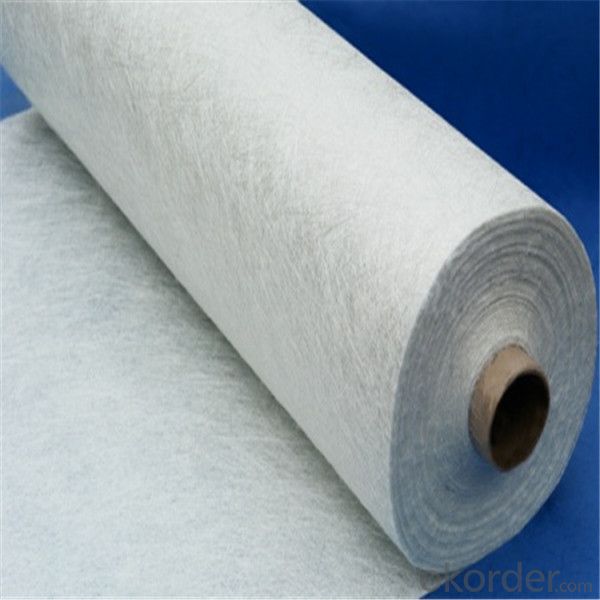
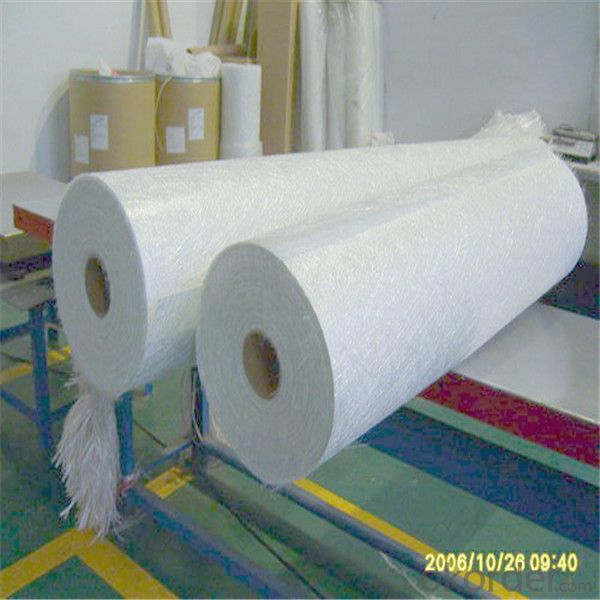
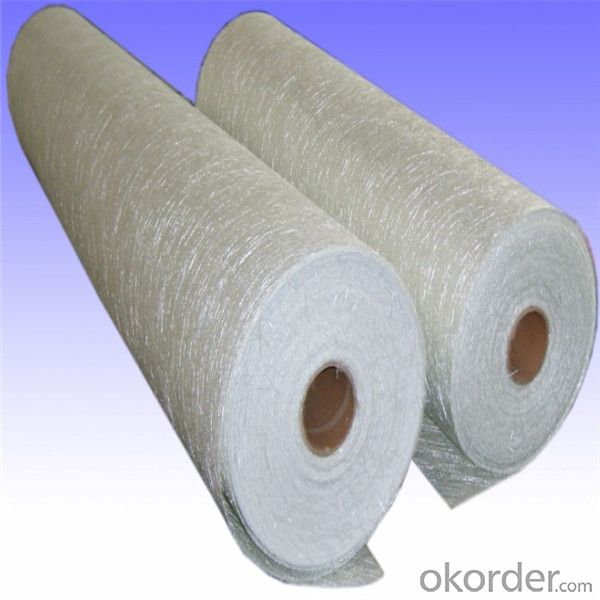
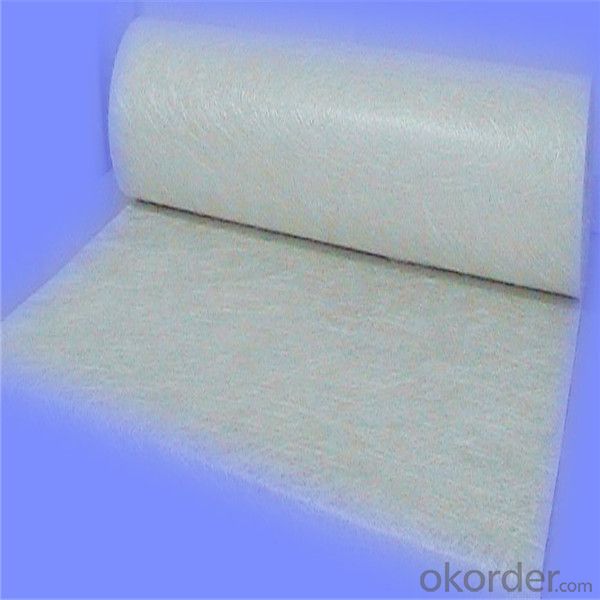
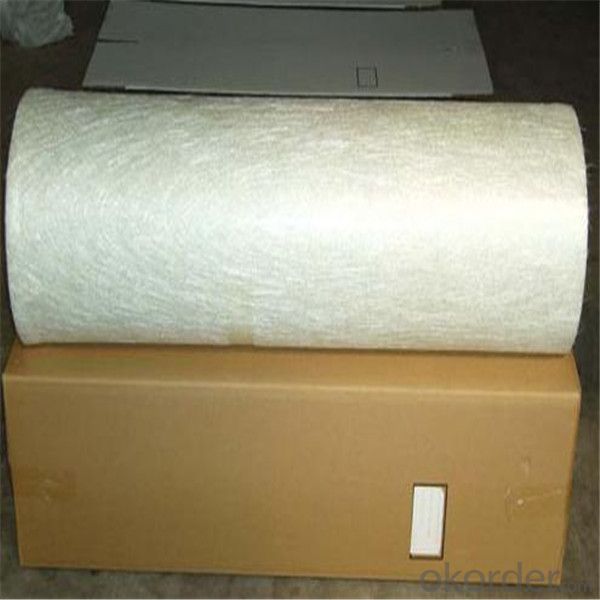
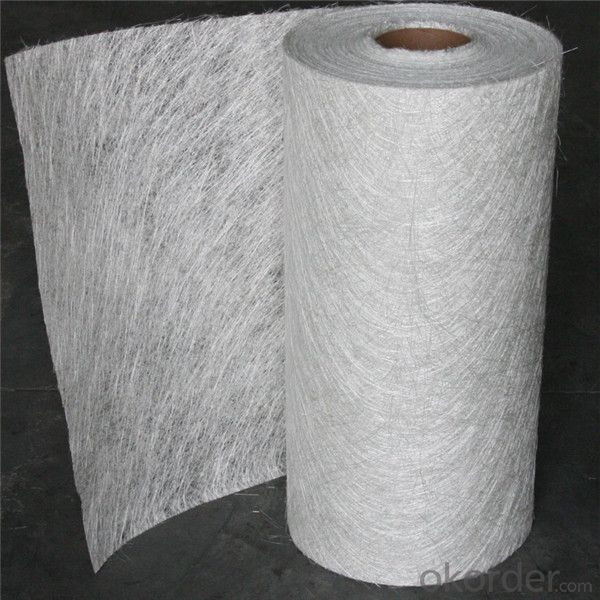
- Q: Can fiberglass mat tissue be used for creating molds?
- No, fiberglass mat tissue cannot be used for creating molds. Fiberglass mat tissue is a thin, lightweight material that is typically used as a reinforcement layer in fiberglass composite applications. It is not designed to be a mold-making material. Instead, materials such as silicone, resin, or plaster are commonly used to create molds due to their ability to capture fine details and provide a smooth surface finish.
- Q: What is the typical thickness range of fiberglass mat tissue?
- The typical thickness range of fiberglass mat tissue is between 0.3 to 1.5 millimeters.
- Q: How does fiberglass mat tissue perform in terms of chemical resistance?
- Fiberglass mat tissue generally exhibits good chemical resistance due to the inherent properties of fiberglass, making it suitable for various applications where exposure to chemicals is a concern.
- Q: What are the different reinforcement orientations available for fiberglass mat tissue?
- Fiberglass mat tissue offers several reinforcement orientations, each intended for specific purposes in different applications. One common orientation is unidirectional reinforcement, where fibers align in one direction. This orientation provides great strength and stiffness in that alignment, making it suitable for applications requiring resistance to tension or bending forces in a single direction. Another orientation is bidirectional reinforcement, where fibers align in two perpendicular directions. This orientation provides equal strength and stiffness in both directions, making it ideal for applications needing resistance to tension and compression forces. Structural components like panels, pipes, and tanks commonly employ bidirectional reinforcement. A third orientation is randomly oriented reinforcement, where fibers distribute randomly. This orientation offers isotropic properties, meaning it provides similar strength and stiffness in all directions. Random reinforcement is often used in applications requiring uniform strength and flexibility, like automotive parts, boat hulls, and sporting goods. Furthermore, hybrid reinforcement orientations are available, combining different fibers or orientations to meet specific performance requirements. These hybrids offer a combination of strength, stiffness, flexibility, and other desired properties, making them suitable for a wide range of applications. Overall, the choice of reinforcement orientation for fiberglass mat tissue depends on the application's specific requirements, including desired mechanical properties, forces to be resisted, and other performance considerations.
- Q: What are the main applications of fiberglass mat tissue?
- Fiberglass mat tissue, an adaptable material, finds diverse applications in industries like construction, automotive, aerospace, and marine. Key uses of this material comprise: 1. Construction: Fiberglass mat tissue commonly reinforces and strengthens building materials in the construction industry, including roofing shingles, wallboards, and cementitious products. It enhances tensile strength and durability, rendering the structures more resistant to cracks, water damage, and weathering. 2. Automotive: The manufacturing of automotive parts, such as dashboards, door panels, and trunk liners, heavily relies on fiberglass mat tissue. It imparts structural integrity, sound insulation, and heat resistance, contributing to safer and more comfortable vehicles. 3. Aerospace: Lightweight composite materials used in aircraft structures benefit from the inclusion of fiberglass mat tissue. This material aids in reducing overall weight, improving fuel efficiency, and enhancing performance. 4. Marine: Fiberglass mat tissue plays a significant role in boat and shipbuilding. It provides strength, stiffness, and resistance to water and corrosion in the construction of hulls, decks, and other components. Its lightweight, durability, and low maintenance requirements make it preferable to traditional materials like wood. 5. Electrical and Electronics: Fiberglass mat tissue serves electrical insulation purposes, such as transformer boards, electrical cabinets, and switchgear. Its excellent dielectric properties, heat resistance, and mechanical strength ensure the safety and reliability of electrical equipment. 6. Filtration: Various filtration applications, such as air filters, water filters, and oil filters, employ fiberglass mat tissue. It acts as a filtration medium, capturing and eliminating impurities, dust, and particles from air, water, or oil, thereby enhancing the quality and purity of filtered substances. In summary, fiberglass mat tissue finds extensive use across industries due to its strength, durability, lightweight nature, and resistance to environmental factors. Its versatility enables it to be an indispensable component in diverse applications, contributing to the development of safer, sturdier, and more efficient products.
- Q: Does fiberglass mat tissue provide good thermal conductivity?
- No, fiberglass mat tissue does not provide good thermal conductivity.
- Q: How is fiberglass mat tissue manufactured?
- The production of fiberglass mat tissue is accomplished by utilizing glass fibers and a binder material in a multi-step procedure. Firstly, glass fibers are manufactured by melting raw materials like silica sand, limestone, and soda ash in a furnace. The molten glass is then forced through small holes in a spinneret, resulting in the creation of fine strands of glass fibers. Once the glass fibers are generated, they are gathered and formed into a continuous mat. This is achieved by passing the fibers through a sequence of rollers or air jets that align and compress them into a uniform sheet. At this stage, the mat retains a loose and fragile structure. To provide the fiberglass mat tissue with strength and stability, a binder material is introduced. This binder can be a resin or a mixture of resins and additives. Typically, the binder is sprayed onto the mat, allowing it to permeate and bond with the glass fibers. This process is referred to as wet-laid manufacturing. Following the application of the binder, the fiberglass mat tissue undergoes a curing process. Depending on the specific requirements of the product, this may involve the application of heat, pressure, or both. The purpose of the curing process is to solidify the binder and ensure a secure bond with the glass fibers, resulting in a robust and long-lasting mat. Once the curing process is completed, excess moisture is removed from the fiberglass mat tissue through drying. It is then trimmed and cut to the desired dimensions. Depending on its intended use, the mat may undergo further treatments like surface coatings or laminations to enhance its performance properties. In summary, the manufacturing process of fiberglass mat tissue encompasses the production of glass fibers, the formation of a continuous mat, the addition of a binder material, curing, drying, and final processing. This comprehensive procedure guarantees that the resulting fiberglass mat tissue possesses strength, flexibility, and suitability for a diverse range of applications such as insulation, reinforcement in composites, or roofing materials.
- Q: What are the potential environmental impacts of using fiberglass mat tissue?
- The potential environmental impacts of using fiberglass mat tissue include the release of harmful airborne particles during production and installation, which can contribute to air pollution and respiratory issues. Additionally, the disposal of fiberglass mat tissue can pose challenges as it is not biodegradable and may contribute to landfill waste.
- Q: What are the different methods of bonding fiberglass mat tissue to other materials?
- There are several methods of bonding fiberglass mat tissue to other materials, each with its own advantages and considerations. Some of the common methods include: 1. Mechanical Bonding: This method involves physically interlocking the fiberglass mat tissue with the other material. It can be achieved through techniques such as stitching, stapling, or using mechanical fasteners like screws or nails. Mechanical bonding provides a strong and durable connection, but it may require additional hardware and can be time-consuming. 2. Adhesive Bonding: Adhesive bonding is a popular method that uses adhesives or glue to join the fiberglass mat tissue with the other material. This method offers flexibility, as there are various types of adhesives available for different applications. It is important to choose an adhesive that is compatible with both the fiberglass mat tissue and the other material. Proper surface preparation and application techniques are crucial for achieving a strong bond. 3. Resin Infusion: Resin infusion is a process where a liquid resin is infused into the fiberglass mat tissue and other materials, creating a strong bond when cured. This method is commonly used in manufacturing composite products, as it allows for a seamless and uniform bond. Vacuum bagging or resin infusion techniques are typically employed to ensure proper resin distribution and consolidation. 4. Thermal Bonding: Thermal bonding involves the use of heat to bond the fiberglass mat tissue to another material. This method is particularly suitable for thermoplastic materials, as they can be softened and fused together with heat. Techniques such as heat welding or ultrasonic welding are commonly used for thermal bonding. It is important to ensure that the heat does not damage or degrade the fiberglass mat tissue during the bonding process. 5. Fusion Bonding: Fusion bonding is a method where the fiberglass mat tissue and the other material are heated to a molten state and then brought into contact to form a bond. This technique is commonly used in the manufacturing of thermosetting plastics or joining thermoplastic materials. Fusion bonding can provide a strong and seamless bond, but it requires careful control of temperature and pressure to ensure proper bonding without causing damage. In summary, the different methods of bonding fiberglass mat tissue to other materials include mechanical bonding, adhesive bonding, resin infusion, thermal bonding, and fusion bonding. The choice of bonding method depends on factors such as the materials being bonded, the desired strength and durability, and the specific application requirements.
- Q: Can fiberglass mat tissue be used for reinforcing concrete?
- Indeed, reinforcing concrete is possible with the utilization of fiberglass mat tissue. This lightweight and flexible material is frequently employed in construction endeavors to augment the sturdiness and endurance of concrete structures. By embedding it within the concrete, additional reinforcement is provided, which aids in averting the formation of cracks over time. Typically crafted from top-notch glass fibers that are interwoven to form a robust and steady substance, fiberglass mat tissue showcases exceptional tensile strength and corrosion resistance, rendering it an optimal selection for enhancing the performance of concrete. Whether employed in sidewalks, driveways, or other concrete formations, the presence of fiberglass mat tissue can substantially heighten the potency and lifespan of the concrete in question.
Send your message to us
Fiberglass Mat Tissue - Glass Fiber Chopped Strand Mat (Factory Price)
- Loading Port:
- Tianjin
- Payment Terms:
- TT OR LC
- Min Order Qty:
- 100 m.t.
- Supply Capability:
- 20000 m.t./month
OKorder Service Pledge
Quality Product, Order Online Tracking, Timely Delivery
OKorder Financial Service
Credit Rating, Credit Services, Credit Purchasing
Similar products
Hot products
Hot Searches
Related keywords
